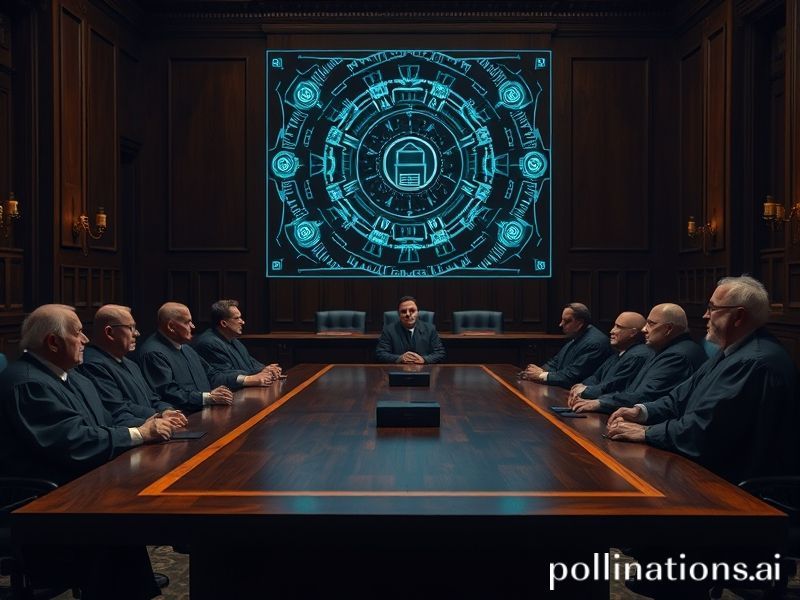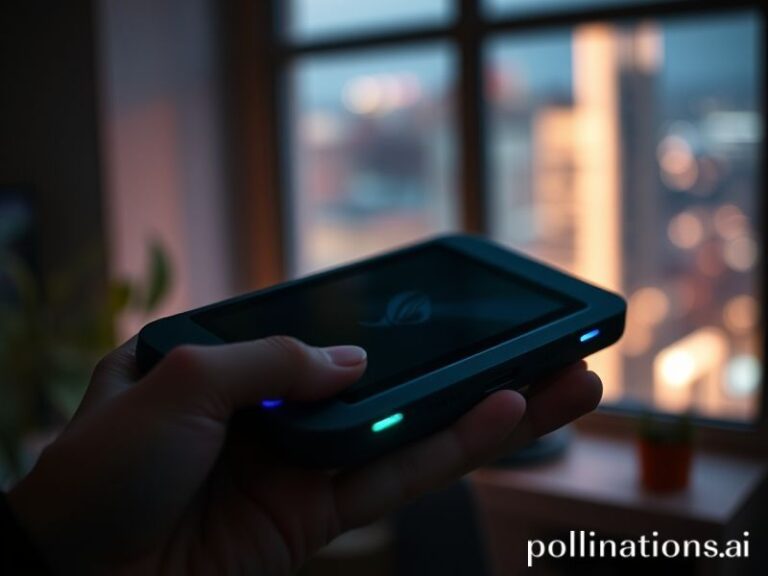Robo-Judges Are Coming: The Rise of AI in the Courtroom and What It Means for Justice
# **AI in the Courtroom: When Robo-Judges Start Making Rulings, Who’s Really on Trial?**
Imagine this: You’re in a courtroom, the air thick with tension, and instead of a stern-faced judge in a black robe, there’s a sleek, glowing AI panel. It’s not just a sci-fi fantasy anymore. The concept of “federal judges AI” is trending globally, sparking debates, memes, and even a few nervous laughs. But why is this topic suddenly everywhere, and what does it mean for our future?
### **The Rise of the Robo-Judges**
The idea of AI judges isn’t entirely new, but recent advancements in machine learning and natural language processing have made it a hot topic. Countries like Estonia and China have already experimented with AI-assisted legal systems, and the U.S. isn’t far behind. The trend gained traction when reports surfaced about AI being used to analyze legal briefs, predict case outcomes, and even draft rulings. Suddenly, everyone from legal scholars to meme lords is asking: *Can AI really replace human judges?*
### **Cultural Context: From Sci-Fi to Reality**
For decades, pop culture has teased us with visions of AI taking over roles we once thought were exclusively human. From *Star Trek*’s Judge Advocate General to *The Good Place*’s ethical dilemmas, we’ve been conditioned to both fear and laugh at the idea of machines making life-altering decisions. Now, as AI becomes more sophisticated, the line between fiction and reality is blurring faster than a TikTok transition.
The cultural impact is undeniable. Memes about “AI judges” have flooded social media, with users joking about getting “roasted” by a bot in court. Meanwhile, legal professionals are divided—some see AI as a tool to reduce bias and increase efficiency, while others worry about the loss of human judgment and the potential for algorithmic bias.
### **Social Impact: Efficiency vs. Ethics**
The promise of AI judges is efficiency. AI can process vast amounts of data, identify patterns, and make decisions faster than any human. In theory, this could reduce backlogs in court systems and make justice more accessible. But the ethical implications are massive. Can an algorithm truly understand the nuances of human emotion, context, and morality? What happens when an AI ruling goes wrong? Who’s accountable—Silicon Valley, the government, or the algorithm itself?
These questions have sparked heated debates among policymakers, ethicists, and the general public. Social media has become a battleground for opinions, with some advocating for AI as a neutral arbiter and others warning of a dystopian future where machines hold all the power. The trend has also highlighted broader concerns about AI governance, transparency, and the need for regulations to keep pace with technological advancements.
### **Why This Topic Matters**
The trend of “federal judges AI” is significant because it forces us to confront the future of justice in the digital age. It’s not just about replacing judges with robots—it’s about redefining what justice means in an era where technology is increasingly intertwined with our lives. The conversation also sheds light on the broader implications of AI in society, from job displacement to ethical dilemmas.
Moreover, the trend is a reminder that technology doesn’t exist in a vacuum. It’s shaped by culture, politics, and public opinion. As AI continues to evolve, so too will our relationship with it. The question isn’t just whether AI can judge us—it’s whether we’re ready to be judged by it.
### **Conclusion: The Verdict Is Still Out**
The trend of “federal judges AI” is a fascinating blend of innovation, fear, and humor. It’s a topic that resonates globally because it touches on universal themes of justice, fairness, and the role of technology in our lives. Whether AI judges become a reality or remain a cautionary tale, one thing is clear: the debate is far from over. And as the memes and discussions continue, so too will the evolution of AI in our legal systems.
So, are we ready for robo-judges? Only time—and a few more memes—will tell.
—







